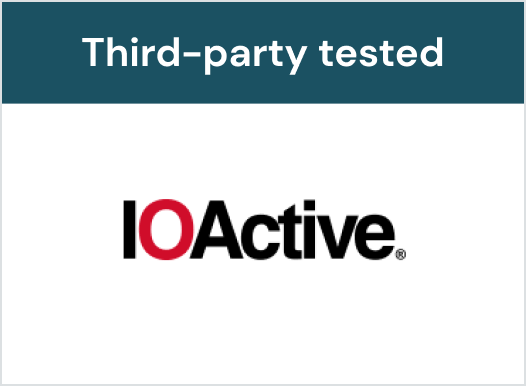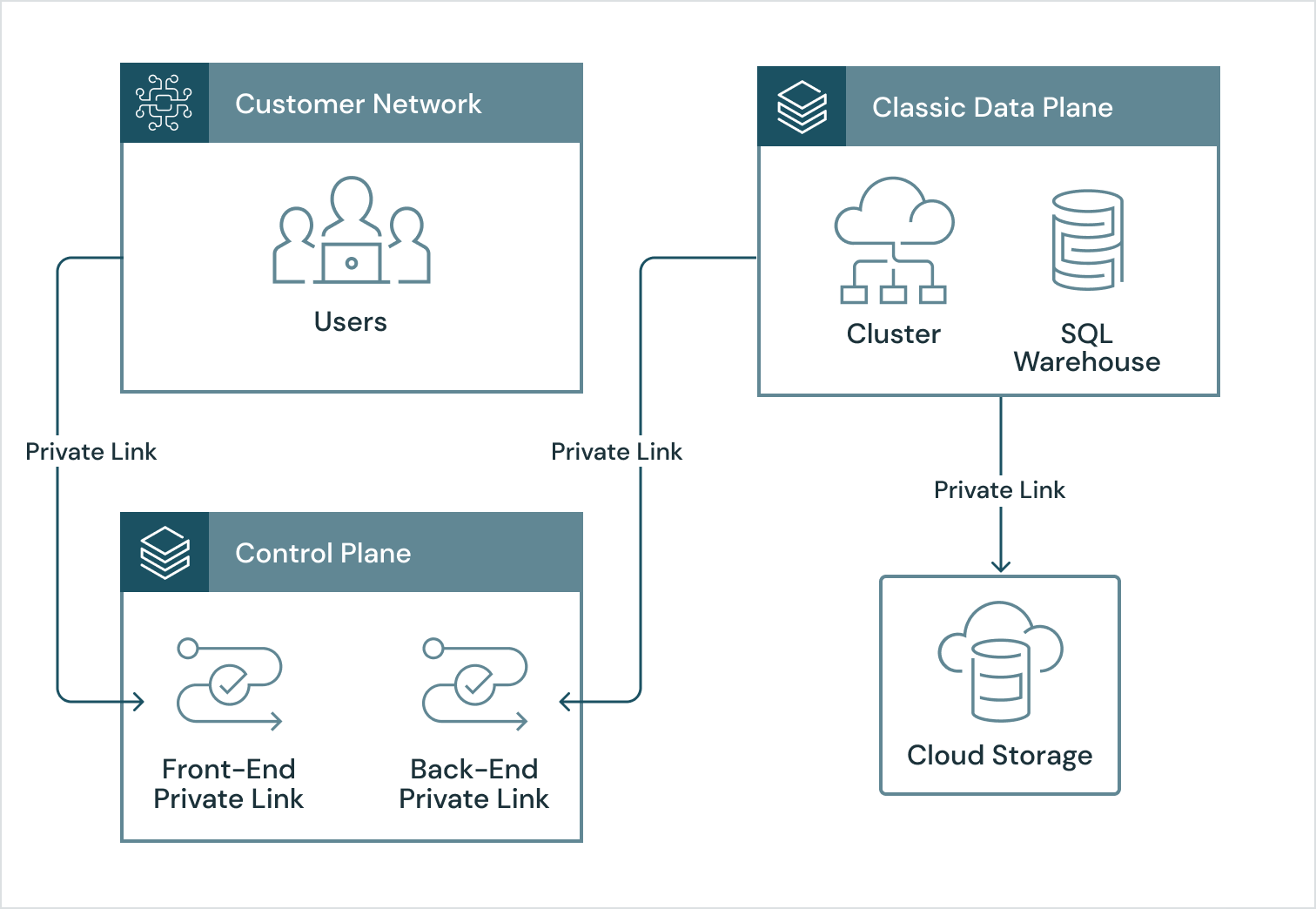Security & Trust Center
Your data security is our top priority
Secure Your Data With Private Networking
At Databricks, we know that data is one of your most valuable assets and always has to be protected, which is why many customers want the guarantee of private networking from their users to their data and back again. That’s where Private Link comes in. On AWS it’s called PrivateLink, on Azure Private Link, and on GCP Private Service Connect. For simplicity, we’ll refer to all three as Private Link here.
Customers can use Private Link to set up end-to-end private networking for their Databricks Data Intelligence Platform.

The benefits of Private Link with Databricks
Using Private Link with Databricks provides the following benefits:
-
End-to-end private networking – With Private Link, you can set up Databricks workspaces that route traffic privately from your users to your data and back again. Routing traffic on private networks substantially reduces the risk of accidental firewall misconfiguration or traffic inspection by very advanced attackers.
-
Data exfiltration protection – Private Link endpoints grant access to specific resources, allowing you to tightly control network access. In the event of a security incident within your network, only the mapped resource would be accessible, greatly reducing the attack surface for data exfiltration.
-
Meet compliance requirements – With Private Link, you can set up a secure perimeter around your data so that it is only processed in trusted private networks. This helps you to meet compliance requirements for even your most sensitive workloads.
How it works
Databricks supports private networking via the following services:
-
AWS PrivateLink for Databricks on AWS
-
Microsoft Azure Private Link for Azure Databricks
-
GCP Private Service Connect for Databricks on GCP (In Preview)
You can leverage cloud services like AWS DirectConnect, Azure ExpressRoute and Google Cloud Interconnect to route traffic from your own private network to the cloud over a dedicated connection that never touches the public internet. Some customers route user traffic by running their VPN in their chosen cloud. Once traffic arrives there, you can connect via Private Link to cloud services including Databricks. The magic that resolves the public addresses for these cloud services to your own private IP addresses is DNS resolution or forwarding (recommended).
To enable future scale out, customers often use a hub-and-spoke model to connect their private networks together. Once traffic arrives at the Databricks Private Link service, you can choose from several enforcement options:
-
Allow access to your workspace from specific private endpoints in your cloud account (recommended)
-
Allow access to your workspace from any private endpoint in your cloud account
-
Allow access to your workspace from specific private and public networks
